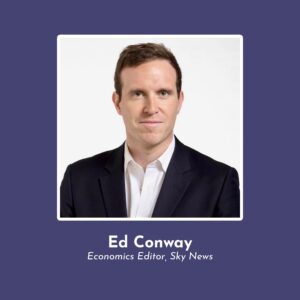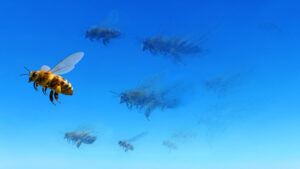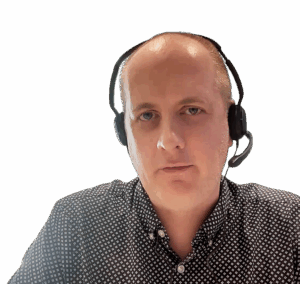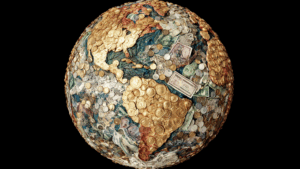
Show Summary
In contrast to ‘The Great Simplification’, some might call the events of the last few hundred years a ‘Great Complexification’ in terms of relationships, governance, supply chains, and many other human activities. Today’s conversation with economics journalist Ed Conway focuses on the six essential resources that underpin our modern economies – sand, salt, iron, copper, oil, and lithium – and dives into the (often unseen) environmental and human costs of extracting them, as well as the surprisingly fragile global supply chains they fuel.
In order to understand what possibilities – and dangers – may await us in the future, we need to understand the realities and constraints of the present, as well as the fail points of the past. What does it take to mine, refine, and transform the materials that are foundational to the world around us – which many of us now take for granted? How can we ensure the stability of global supply chains, and could we predict potential disruptions and chokepoints before they arise? If we understood the intricate web of complexity, energy, and resources that go into everything we consume, would it change our expectations for how much we need in order to live a good and fulfilling life?
About Ed Conway
Ed Conway is a writer and broadcaster. He is the Economics and Data Editor of Sky News and has written for many newspapers and publications, including the New York Times, the Times of London and the New Statesman. His latest book, Material World, was an Economist and Sunday Times Book of the Year and was shortlisted for the 2023 FT Business Book of the Year Award. He has also written two other critically acclaimed and bestselling books and has won numerous awards for his journalism. He was educated at Oxford and Harvard. He lives in London.
In French, we have a motto that says that a simple drawing is often better than a long explanation. Jean-Marc Jancovici Carbone 4 President
That’s very understandable because with left atmosphere thinking, one of the problems is that you see everything as a series of problems that must have solutions. Iain McGilchrist Neuroscientist and Philosopher
We can’t have hundreds and hundreds of real relationships that are healthy because that requires time and effort and full attention and awareness of being in real relationship and conversation with the other human. Nate Hagens Director of ISEOF
This is the crux of the whole problem. Individual parts of nature are more valuable than the biocomplexity of nature. Thomas Crowther Founder Restor
Show Notes & Links to Learn More
00:00 – Edmund Conway Works + Info, Material World: The Six Raw Materials That Shape Modern Civilization
01:23 – Olivia Lazard + TGS Episode, Michael Michaux + TGS Episodes
03:53 – I, Pencil
04:52 – Invisible Hand
05:40 – Brexit
05:55 – Distorted gold export stats for the UK
07:02 – The supply chain of gold
10:08 – History of glass
10:20 – What we use sand for today
11:16 – How Silicon Chips are made
11:40 – 1915 Glass Famine
16:06 – The importance of concrete, CO2 emissions
17:18 – Chip War
18:12 – Silica, Wentworth Scale
18:57 – Hawaiian Beach Sand is Parrot Fish Excrements
20:11 – Types of sand
20:58 – Constraints of mining useful sand, Yukon Delta
23:19 – Cement research
23:40 – Ancient cement recipes
24:48 – Cement absorbs CO2 over time, research on this
29:40 – Global map of sand mines
31:26 – Limestone availability
32:02 – Ultra high purity quartz, crucibles, Spruce Pine, NC
33:12 – History of salt
33:39 – Mark Kurlansky
34:21 – Importance of salts to pharmaceuticals
35:01 – Salt’s importance to batteries
35:22 – Salt use in petroleum products
35:41 – Indian independence and salt production
36:55 – Salt is used for so many things
37:33 – Salt for water purification
39:02 – Sand mines under the mississippi river
40:11 – Sodium batteries
40:30 – Soda ash U.S. deposits
42:41 – Lithium scarcity, lithium uniqueness as an energy storage medium
43:25 – History of lithium batteries
46:19 – Copper importance and availability
46:52 – Copper substitutability with aluminum or silver
48:19 – Peak Copper
48:29 – Julian Simons and Paul Ehrlich bet
50:08 – Energy and water intensity of mining copper
50:28 – Declining density of copper in the crust available for mining
51:47 – Chuquicamata
54:45 – Social push back against mining projects
55:52 – Health effects in mining towns
57:21 – International Energy Agency, net zero models and anticipated country development
59:43 – Russia is one of the richest countries in natural resources
1:00:53 – Brandauer
1:03:24 – Fukushima Earthquake effects on ford truck supply chain
1:04:10 – Comparative Advantage
1:04:57 – Richard Baldwin
1:07:11 – Invention of GDP
1:08:30 – Semiconductor industry war
1:09:37 – UK no longer domestically producing fertilizer, Haber Bosch
1:10:07 – Fertilizer plant shut down causes crisis for CO2 canister for pig farms in the UK
1:12:53 – Wassily Leontief , input/output tables
1:15:45 – Camborne Mining School, shut down their mining course
1:20:50 – Recycling rates
1:21:15 – Steel per nation per capita, 15 tons for a developed nation
1:24:11 – Logom
1:24:28 – Conway’s Jevons Paradox Thread, Jevons Paradox
1:25:10 – William Stanley Jevons
1:28:10 – AI and increase in energy consumption
1:38:52 – Resource per capita vs standard of living
1:40:15 – The Summit, Bretton Woods Conference
1:41:48 – China’s dominance in EVs
1:42:16 – Global imbalances of debt and surplus







